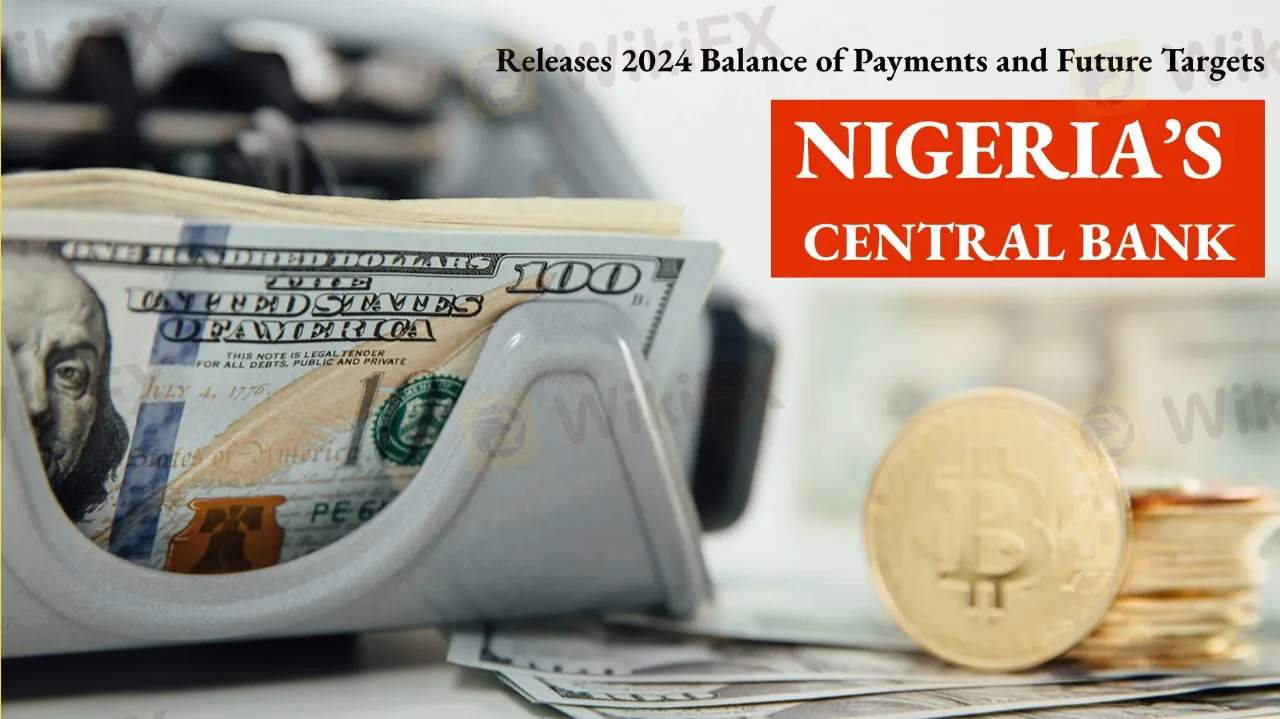Nigeria’s Central Bank Releases 2024 Balance of Payments and Future Targets
Abstract:In 2024, Nigeria flipped its balance of payments from deficit to surplus—marking a rebound in confidence and policy effectiveness.

In 2024, Nigeria's Central Bank reported a balance of payments surplus of $6.83 billion, reversing deficits from the previous two years. This positive shift was driven by a combination of stronger exports, lower imports, and improved investor flows.
Both gas and non-oil exports recorded double-digit growth, while imports of oil and non-oil products declined, shrinking the trade gap. At the same time, remittance inflows and securities investments surged, helping to boost external earnings. Foreign reserves also rose by $6 billion to $40.19 billion, reinforcing the countrys financial buffer.
Future Strategy Focuses on Financial Inclusion
Building on this momentum, the Central Bank is targeting greater access to financial services. The goal for 2024 is to reach a 95% financial inclusion rate while reducing financial exclusion to 25%.
Although there‘s still ground to cover, progress has been steady over the past few years, reflecting gains in infrastructure and outreach. Increasing the population’s engagement with formal financial systems remains a top priority moving forward.
Despite the encouraging overall performance, certain vulnerabilities remain—particularly the sharp drop in foreign direct investment, highlighting global investors cautious stance. Around one-third of Nigerian adults still lack access to formal financial services.
Striking a balance between currency stability and economic expansion will be key. As global uncertainties persist, sustaining Nigerias recovery will require consistent policy execution and adaptability.

Read more

Why Trade Agreements Matter to Nations
In today’s interconnected world, trade agreements serve as the foundation for stable and predictable international commerce.

Trade Fights Are Heating Up—What Happens Next?
Global financial markets have become increasingly reactive to even minor developments in international trade talks.

Juno Markets Upgrades to FYNXT PAMM
Juno Markets has successfully upgraded its managed account infrastructure by integrating FYNXT’s Percent Allocation Management Module (PAMM) system.

Italy’s CONSOB Blocks Sites of ITradingFX and NEX TRADE in Latest Crackdown
Italy’s Companies and Exchange Commission (CONSOB) has ordered Internet service providers to block access to nine unauthorized investment websites, including “ITradingFX” and “NEX TRADE,” as part of its ongoing effort to curb abusive financial services Consob.
WikiFX Broker
Latest News
"Rate & Reward: Broker Review Contest"
FSRA Sanctions Hayvn Group and CEO for Regulatory Breaches and Misleading Conduct
2024 AI Ad-Blocking Performance Revealed
Why Are More Regulated Brokers Providing Free VPS Services?
SkyLine Guide 2025 Thailand Officially Launched: Judging Panel Formation Underway
Five UK Financial Firms Collapse, FSCS Offers Support for Affected Clients
Why Trade Agreements Matter to Nations
Non-Existent Online Scheme Took Away RM580,000
RM15 Million Gone in Fake Investment Scam
CySEC Issues Investor Alert on Unauthorized Financial Websites
Rate Calc
